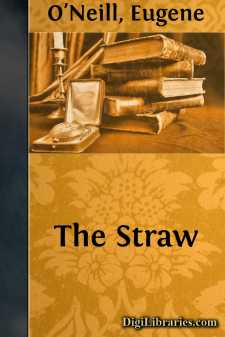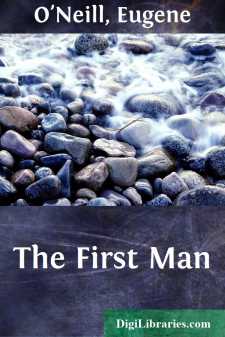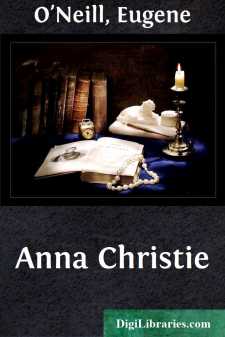Categories
- Antiques & Collectibles 13
- Architecture 36
- Art 48
- Bibles 22
- Biography & Autobiography 813
- Body, Mind & Spirit 141
- Business & Economics 28
- Children's Books 12
- Children's Fiction 9
- Computers 4
- Cooking 94
- Crafts & Hobbies 4
- Drama 346
- Education 46
- Family & Relationships 57
- Fiction 11826
- Games 19
- Gardening 17
- Health & Fitness 34
- History 1377
- House & Home 1
- Humor 147
- Juvenile Fiction 1873
- Juvenile Nonfiction 202
- Language Arts & Disciplines 88
- Law 16
- Literary Collections 686
- Literary Criticism 179
- Mathematics 13
- Medical 41
- Music 40
- Nature 179
- Non-Classifiable 1768
- Performing Arts 7
- Periodicals 1453
- Philosophy 64
- Photography 2
- Poetry 896
- Political Science 203
- Psychology 42
- Reference 154
- Religion 513
- Science 126
- Self-Help 83
- Social Science 81
- Sports & Recreation 34
- Study Aids 3
- Technology & Engineering 59
- Transportation 23
- Travel 463
- True Crime 29
The Straw
by: Eugene O'Neill
Description:
Excerpt
Act One
Act One: Scene One
The kitchen of the Carmody home on the outskirts of a manufacturing town in Connecticut. On the left, forward, the sink. Farther back, two windows looking out on the yard. In the left corner, rear, the icebox. Immediately to the right of it, in the rear wall, a window opening on the side porch. To the right of this, a china cupboard, and a door leading into the hall where the main front entrance to the house and the stairs to the floor above are situated. On the right, to the rear, a door opening on to the dining room. Further forward, the kitchen range with scuttle, wood box, etc. In the centre of the room, a table with a red and white cloth. Four cane-bottomed chairs are pushed under the table. In front of the stove, two battered wicker rocking chairs. The floor is partly covered by linoleum strips. The walls are papered a light cheerful colour. Several old framed picture-supplement prints hang from nails. Everything has a clean, neatly-kept appearance. The supper dishes are piled in the sink ready for washing. A saucepan of water simmers on the stove.
It is about eight o'clock in the evening of a bitter cold day in late February of the year 1912.
As the curtain rises, Bill Carmody is discovered fitting in a rocker by the stove, reading a newspaper and smoking a blackened clay pipe. He is a man of fifty, heavy-set and round-shouldered, with long muscular arms and swollen-veined, hairy hands. His face is bony and ponderous; his nose short and squat; his mouth large, thick-lipped and harsh; his complexion mottled—red, purple-streaked, and freckled; his hair, short and stubby with a bald spot on the crown. The expression of his small, blue eyes is one of selfish cunning. His voice is loud and hoarse. He wears a flannel shirt, open at the neck, criss-crossed by red braces; black, baggy trousers grey with dust; muddy brogues.
His youngest daughter, Mary, is sitting on a chair by the table, front, turning over the pages of a picture book. She is a delicate, dark-haired, blue-eyed, quiet little girl about eight years old.
CARMODY (after watching the child's preoccupation for a moment, in a tone of half exasperated amusement). Well, but you're the quiet one, surely! (Mary looks up at him with a shy smile, her eyes still full of dreams.) Glory be to God, I'd not know a soul was alive in the room, barrin' myself. What is it you're at, Mary, that there's not a word out of you?
MARY. I'm looking at the pictures.
CARMODY. It's the dead spit and image of your sister Eileen you are, with your nose always in a book; and you're like your mother, too, God rest her soul. (He crosses himself with pious unction and Mary also does so.) It's Nora and Tom has the high spirits in them like their father; and Billy, too,—if he is a lazy, shiftless divil—has the fightin' Carmody blood like me. You're a Cullen like your mother's people. They always was dreamin' their lives out. (He lights his pipe and shakes his head with ponderous gravity.) There's no good in too many books, I'll tell you....





